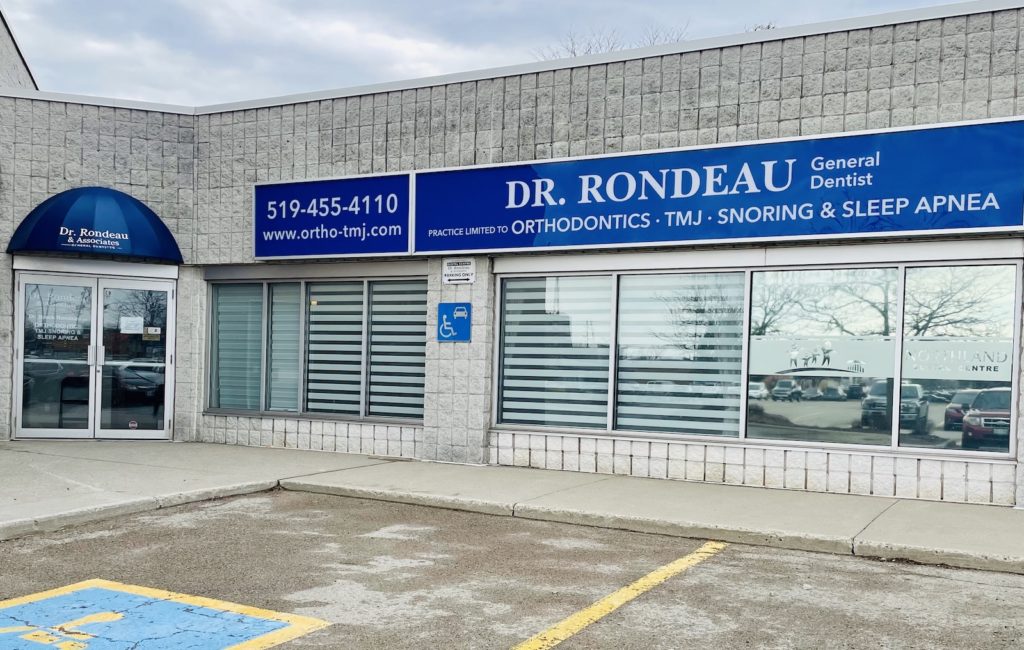Our Office
Dedicated to Providing Exceptional Care

Appointments
Call For Scheduling and Pricing Options
(519) 455-4110
1-866-933-4110 – Toll Free
519-455-4779 – Fax
Our Office Address
Dr. Rondeau & Associates
1295 Highbury Avenue #C8
London, ON N5Y 5L3

Office Hours
Mon: 8:00 am – 5:00 pm
Tue: 8:00 am – 5:00 pm
Wed: 8:00 am – 5:00 pm
Thur: 8:00 am – 4:00 pm
Fri: Closed
*Summer hours may vary.
Office Policies & Frequently Asked Questions
Visa, MC, AMX, Debt, Etransfer, cheque and cash. Except under unusual circumstances, our office does not accept payments from an insurance company. This is in your best interest since you already know all of the information about your appropriate coverage. You can take immediate action should any reimbursement be incorrect. All responsible parties, whether they have insurance or not, will be required to sign a financial arrangement form if making monthly payments. Our financial agreement is with you and not the insurance company and therefore you have the ultimate responsibility for payment of services rendered.
Since service is part of our philosophy, we will be glad to assist you in gaining your benefits by submitting an original claim form with all appropriate information requested by the insurance company. If your company requires additional records be sent to them (which is unusual), we will also comply and directly bill your insurance company for duplication costs.
Your insurance company will reimburse you in their customary way. Every insurance company is different in how and what percentage they pay depending on the plan you have. For example, most insurance companies will cover 50% of the fee up to a lifetime maximum. The most common lifetime maximum is $1000 (less than one-forth of the average full case fee). A typical reimbursement scheme would be to pay 50% of your initial payment, followed by 50% of your monthly payment until the maximum is reached. You would expect to receive the full $1000 only if the fee for treatment exceeded $2000. Most companies pay monthly, rarely do they ever pay the full amount at the beginning of treatment. Even if your account is paid in full at the beginning of treatment, many will only reimburse you on their set schedule. If your insurance status changes, for example if you change jobs, your orthodontic benefits may stop at that point regardless of what you have paid. The bottom line is that orthodontic benefits are among the lowest (percentage) reimbursement in all of healthcare since it is deemed “elective”. In fact, many families that have “dental insurance” do not have orthodontic benefits. The last thing we want is an unhappy parent when they find out that their reimbursements don’t match their expectations after treatment has begun.
The first step is to contact your personnel manager or benefits manager where you are currently employed. This person will be able to assist you in acquiring the appropriate information concerning your coverage as well as provide you with dental forms. Many patients do not realize the effort we would have to put forth to interpret their plans in order to gain all of the benefits possible for each patient. This is especially true with all of the changing benefits from year to year. We recommend that each patient thoroughly research, understand and maintain their benefit plans.
With the increased number of dental insurance, prepayment, and reimbursement programs, it is difficult to have a complete and accurate knowledge of all available programs. For example, some companies have dental benefits, but no orthodontic coverage while others have age limits or different rates of coverage for orthodontic treatment. Still, others have deductibles and may cover only a percentage of the fee up to a maximum amount. We have also encountered plans that have yearly maximums that encourage patients to extend or delay treatment to obtain certain benefits. This last example may not only be unfair to the patient but can affect treatment results.



